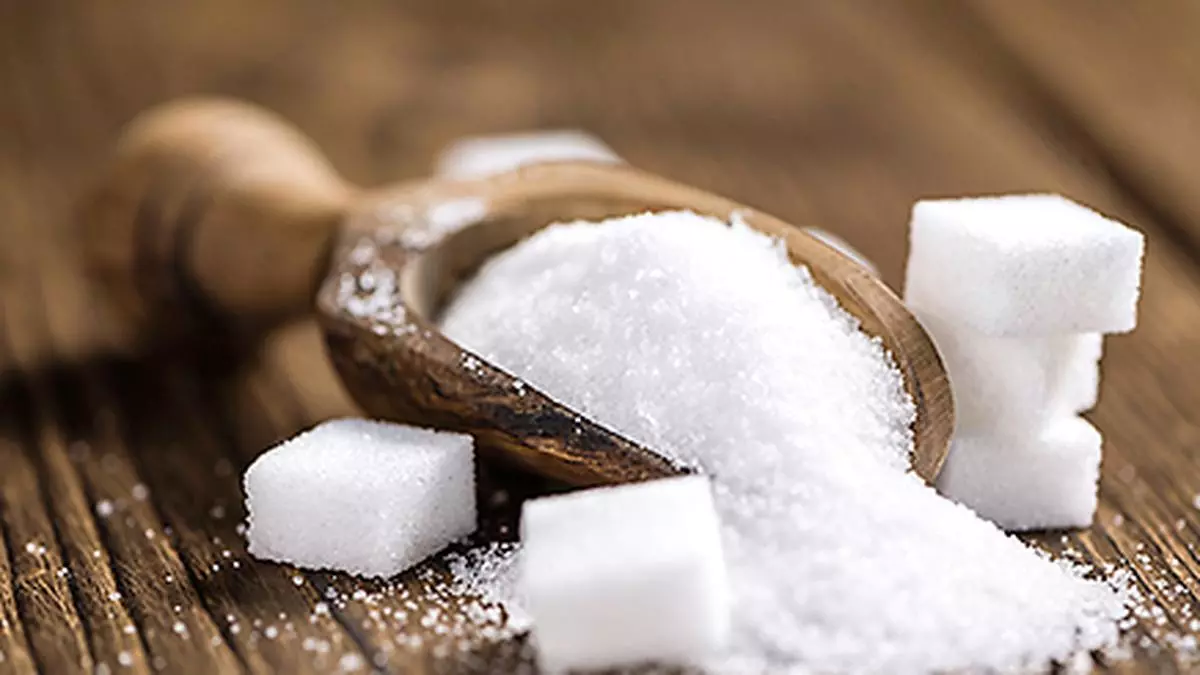Draft Sugar Control Order proposes to control by-products
The Centre has come up with a draft Sugar (Control) Order, 2024, saying technological advancements in the production process and multiple changes in the sugar industry over the past few years have necessitated revamping of existing Sugar (Control) Order, 1966.
The original Order was issued in 1966, though it has been amended from time to time. The public can give its feedback within a month.
The draft order has added “by-products” of sugar, while dropping some of the archaic provisions. “It is requested to provide your comments/suggestions, if any, on the draft latest by September 23,” said Jaivir Singh, an under secretary in the Food Ministry.
Definition
Sugar has been defined as “any form of sugar containing more than 90 per cent of sucrose (polarisation), including raw, plantation white, refined sugar including sugar candy; or Khandsari sugar or bura sugar or crushed sugar or any sugar in crystalline or powdered or liquid form” in the draft Order.
Industry sources said it is good that the government has tried to clear a lot of ambiguity in the sugar sector regulation, which will help it to monitor better and frame the policy accordingly.
Among major notable changes in the proposed Order include bringing under the Order’s ambit all Khandsari units having 500 TCD (tonnes sugarcane crushed per day) capacity or more. This means sugar produced by these units have to follow all government rules currently applicable to sugar mills. “These Khandsari units will also have to buy sugarcane at the government fixed price and have to sell sugar as per government quota,” an industry official said.
Raw sugar included
Sources also said for the first time, raw sugar has been proposed to be put under the Sugar Control Order and once approved, raw sugar produced by mills will also have to conform to rules set by the government.
The government has also proposed to define sugar dealers and bulk consumers by prescribing minimum quantitative limits.
According to the draft Order, “dealer” means “any person engaged in the business of purchase, movement, sale, supply, distribution, storage or processing of sugar, whether as a wholesaler or retailer or big chain retailer or manufacturer or processor or importer or exporter and whether or not in conjunction with any other business and includes his representatives or agent.”
Similarly, “bulk consumer” has been defined as a “halwai, sweetmeat seller, confectioner, soft drink manufacturer, food processing industry or any other institutional buyer consuming not less than 30 tonnes of sugar during last 30 days.”
‘Limit objective’
The draft Order also has defined “by-products” as “any form of product which has been produced during production of sugar namely ethanol (produced from B-heavy/C-heavy molasses, sugarcane juice, sugar syrup, sugar), bagasse, potash based fertilizers, Compressed Bio Gas (CBG), C-heavy molasses, bio-electricity produced from bagasse, press cake or any other alternative product affecting sugar production from sugarcane.”
Section 3 of the draft Order said, “The Centre or the State Government with approval of the Centre, direct that no sugar and its by-products shall be manufactured from sugarcane except under and in accordance with the conditions specified in a licence issued in this behalf, whether on payment of a fee or otherwise.”
Industry sources said as the government’s objective is limited to control ethanol and sugar, the definition of by-products should exclude many items like bagasse, CBG, potash derived from molasses (PDM) and press cakes.
